The Reality Of Cystic Fibrosis: The Inaugural In America Survey Findings
Anyone affected by cystic fibrosis (CF) understands how challenging it can be. CF is a lifelong, genetic disease that affects 30,000 children and adults in the United States.1
While there is not a cure for CF, people with cystic fibrosis are living longer and healthier lives than ever before. However, people in the CF community are also coping with years of time-consuming treatments and difficult health concerns.
One great way to be a CF advocate for yourself or your loved ones with CF is to understand its effect on patients today. For The Inaugural Cystic Fibrosis In America survey, we gathered information from 329 patients and 162 caregivers to learn more about what living with and caring for someone with CF is really like. Below are some insights from our community.
Age of diagnosis varies
Recent research and developments have improved testing for cystic fibrosis. In 2010, newborn screening for cystic fibrosis became standard in all 50 states.2 If a newborn screening leads doctors to believe that the child may have CF, further genetic testing will take place.
These improvements in testing methodology have led to people being diagnosed more often at or before birth. However, this testing has not always been the norm.
You share a lot of the same symptoms
Cystic fibrosis presents in many ways. It most affects the lungs, but also the digestive system, including the pancreas, liver, intestines, and kidneys. CF may also impact the ears, nose and sinuses, sex organs, and the bones and joints.3,4
While people expressed that they experienced a wide variety of symptoms, a few symptoms were indicated more than others.
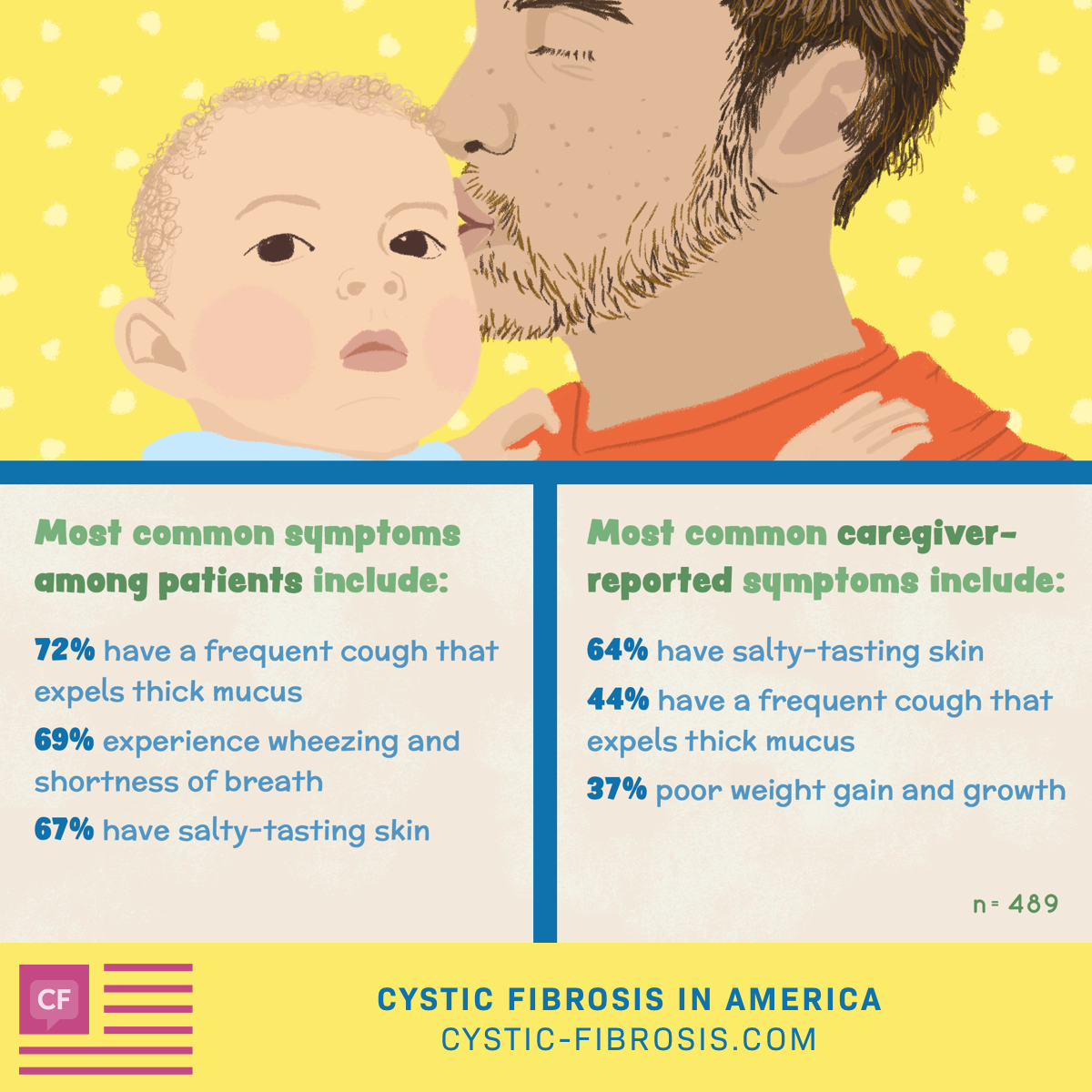
You use many methods to manage symptoms
Managing symptoms is of the utmost importance to members of the community. As many with CF know, daily treatments are very time-consuming. They are even more time consuming for patients going through an exacerbation. An exacerbation can also be painful and can cause the patient to require bed rest and, potentially, hospitalization. Therefore, preventing exacerbations or flare-ups is a priority to CF patients and caregivers.
Other methods included taking vitamins/supplements, using pancreatic enzyme replacement therapy (PERT), consuming a special diet, using supplemental feeding, and more.
CF is not the only condition you’re managing
Depending on the severity of someone’s cystic fibrosis, daily treatments can take up a significant amount of time each day. This loss of time can lead to stress and anxiety about missing out on social activities and quality time with loved ones.
As if CF wasn’t enough to handle, about 4 out of 5 respondents reported that they were also managing other conditions, known as “comorbidities.”
Other conditions included mood disorders and depression, osteoporosis and osteopenia, chronic pain, malnutrition, migraines, sleep disorders, arthritis, liver disease, hearing loss, and more.
You are not going through this alone
CF may sometimes feel like an uphill battle, but it’s important for people with CF to realize that there is a community of CF patients, caregivers, and advocates in your corner.
Many people with CF surround themselves with a support system of family members, friends, and romantic partners as a consistent source of love and encouragement. In fact, many of our respondents reported living with someone else, such as a spouse, parent, child, or friend.
Thank you for being part of our community
We hope that through our community, you will have the opportunity to find more people who understand what living and coping with CF is like. While it’s not easy, and can often feel isolating, you are not alone in your journey with CF.
The Inaugural Cystic Fibrosis In America survey was conducted online from April through September of 2019. Of the 570 people who completed the survey, 329 were people who have been diagnosed with cystic fibrosis and 241 were caregivers of people with cystic fibrosis.
Community Poll
Have you taken our Cystic Fibrosis In America Survey yet?
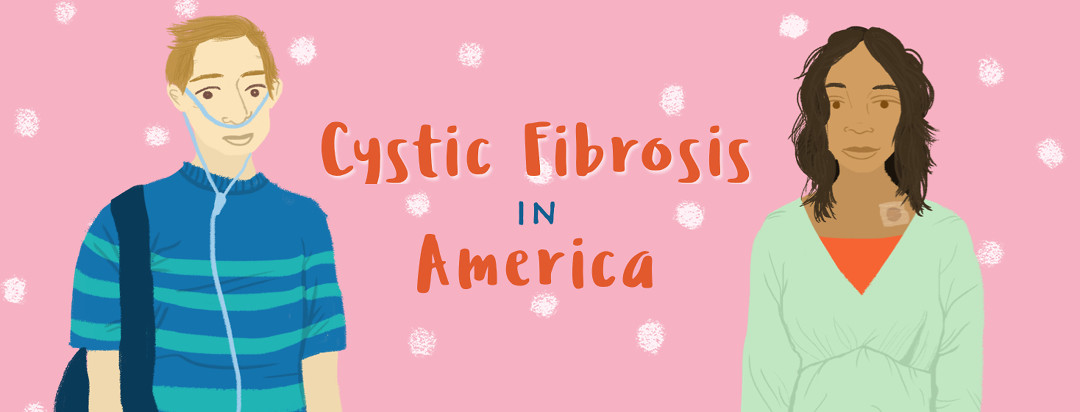
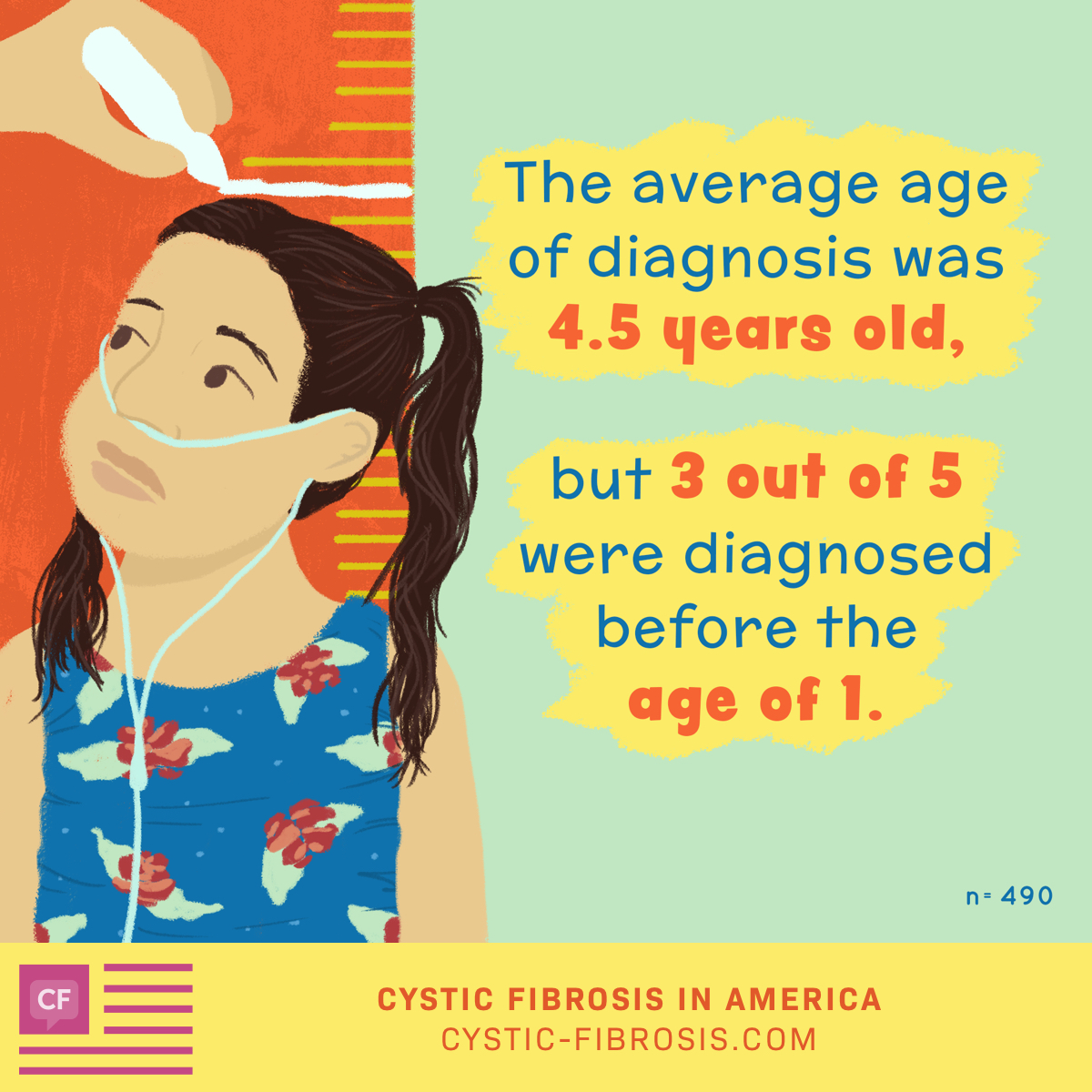
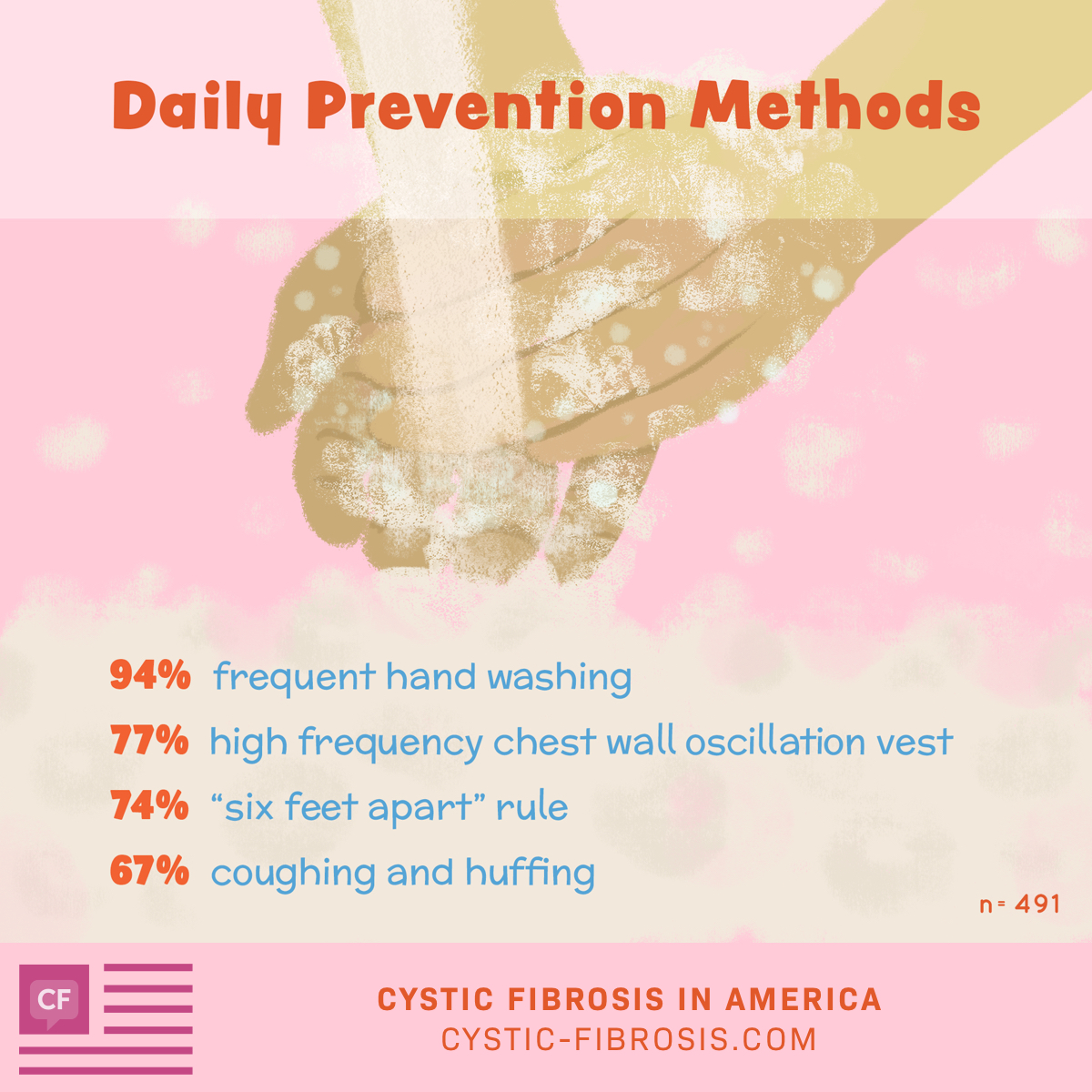
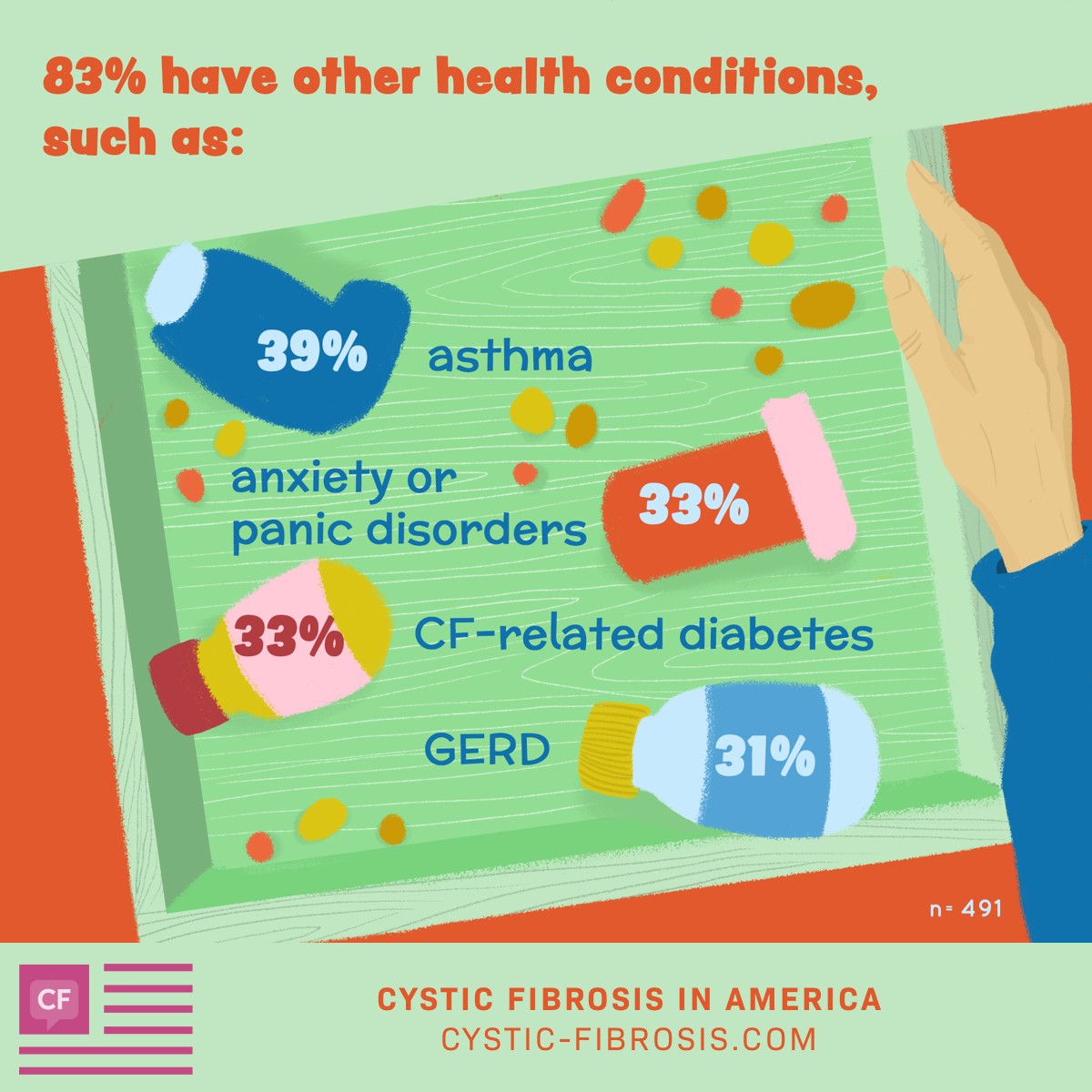
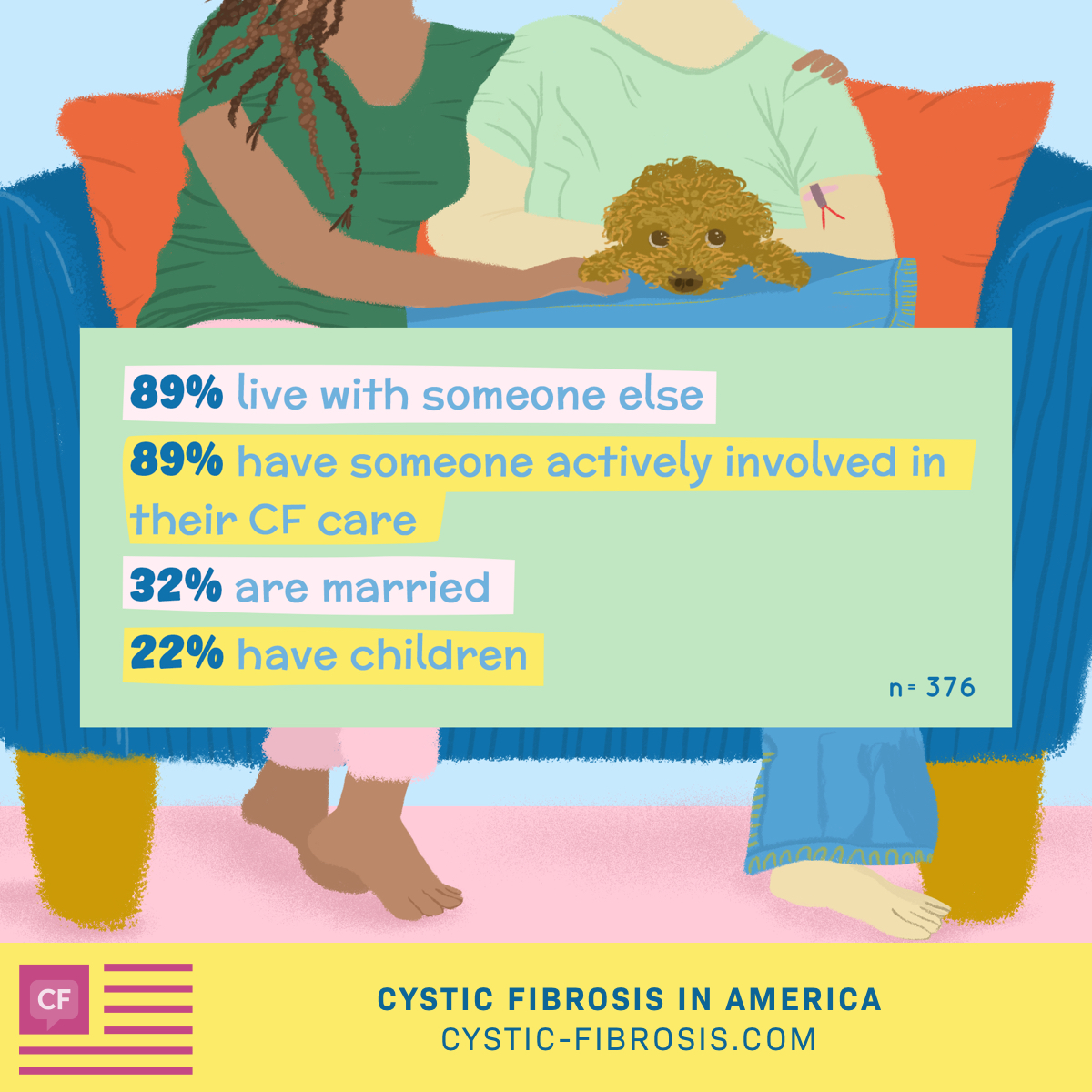
Join the conversation